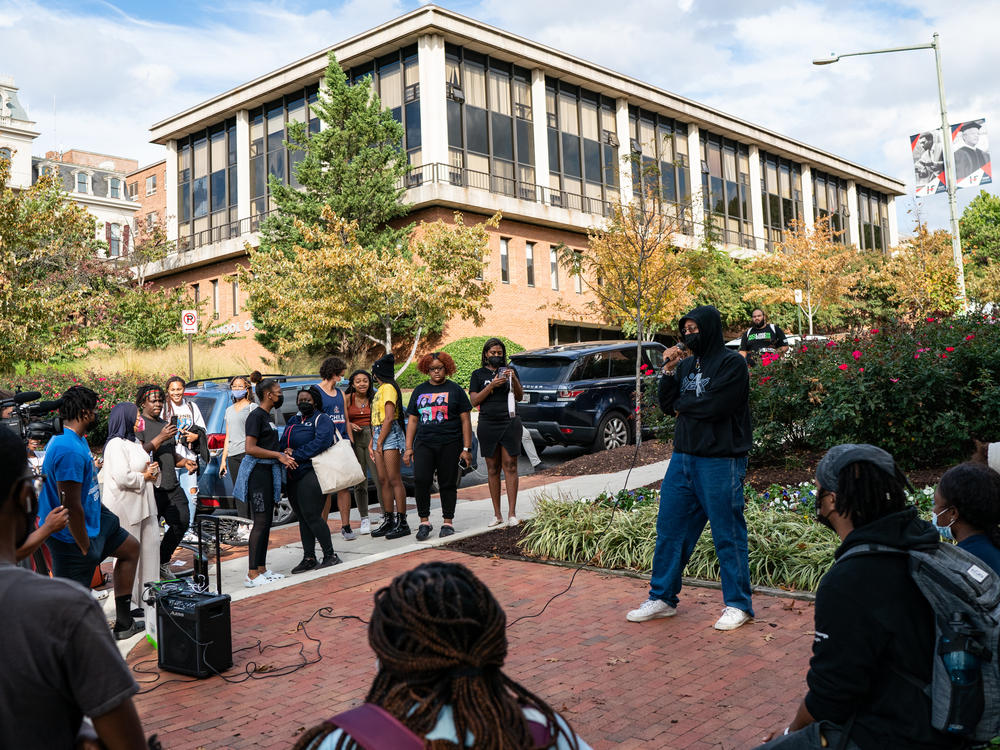Section Branding
Header Content
Howard University students reach an agreement with officials after a month of protest
Primary Content
For more than a month, students at Howard University in Washington, D.C., have been fighting for answers from the school administration as they protested poor housing conditions on campus.
But on Monday, an agreement with protesters at one of the nation's top historically Black universities had been reached, the school announced in a tweet.
The specific details of the negotiations between students and administration were not immediately available. NPR reached out to Howard University; they did not immediately respond to requests for comment.
The university's president, Dr. Wayne A. I. Frederick, released a video message Monday addressing the end of campus protests and how the school will improve conditions for students.
"The health and well-being of our students is the most important part of my job as president," Frederick said. "As I have said before, even one issue in one of our dormitories is too many, and we will continue to remain vigilant in our pledge to maintain safe and high-end housing."
He also did not provide details but referenced the school's 2020 master plan to "grow and invest" in the university, which he said focuses on improving campus experiences for its students, faculty and staff.
During a news conference Monday, student protesters began to celebrate the agreement.
"We spent 33 days saying that not only did our lives mattered, that our voices mattered and our concerns mattered," said one student leader. "We came, we saw, we declared and we won."
Students had been sleeping in tents outside the Blackburn University Center since Oct. 12, protesting what they said were poor housing conditions and the lack of student representation on the Board of Trustees.
Since the start of the fall semester, students say they've raised concerns to campus administrators regarding mold in the walls of their dorms, the lack of COVID-19 testing for students and the overall safety on campus, according to DCist/WAMU.
In his State of the Union address on Nov. 5, Frederick stated that mold was discovered in 41 out of 2,700 rooms on campus, with some of the damage being the result of "accidental human error."
In 2018, students led a nine-day occupation of the campus administration building which resulted in an agreement between officials and students on several campus changes.
The changes included a revision of the school's sexual assault policy, a review of policies allowing campus police officers to carry weapons and the creation of a food bank on campus for students.
Copyright 2021 NPR. To see more, visit https://www.npr.org.

